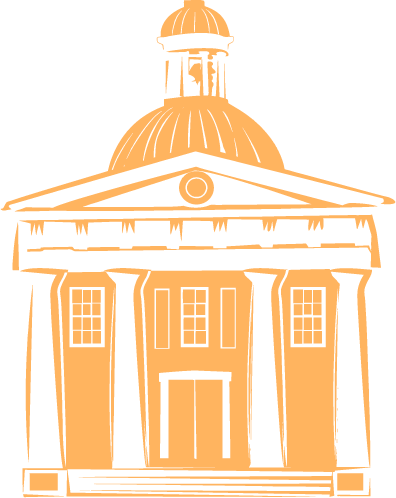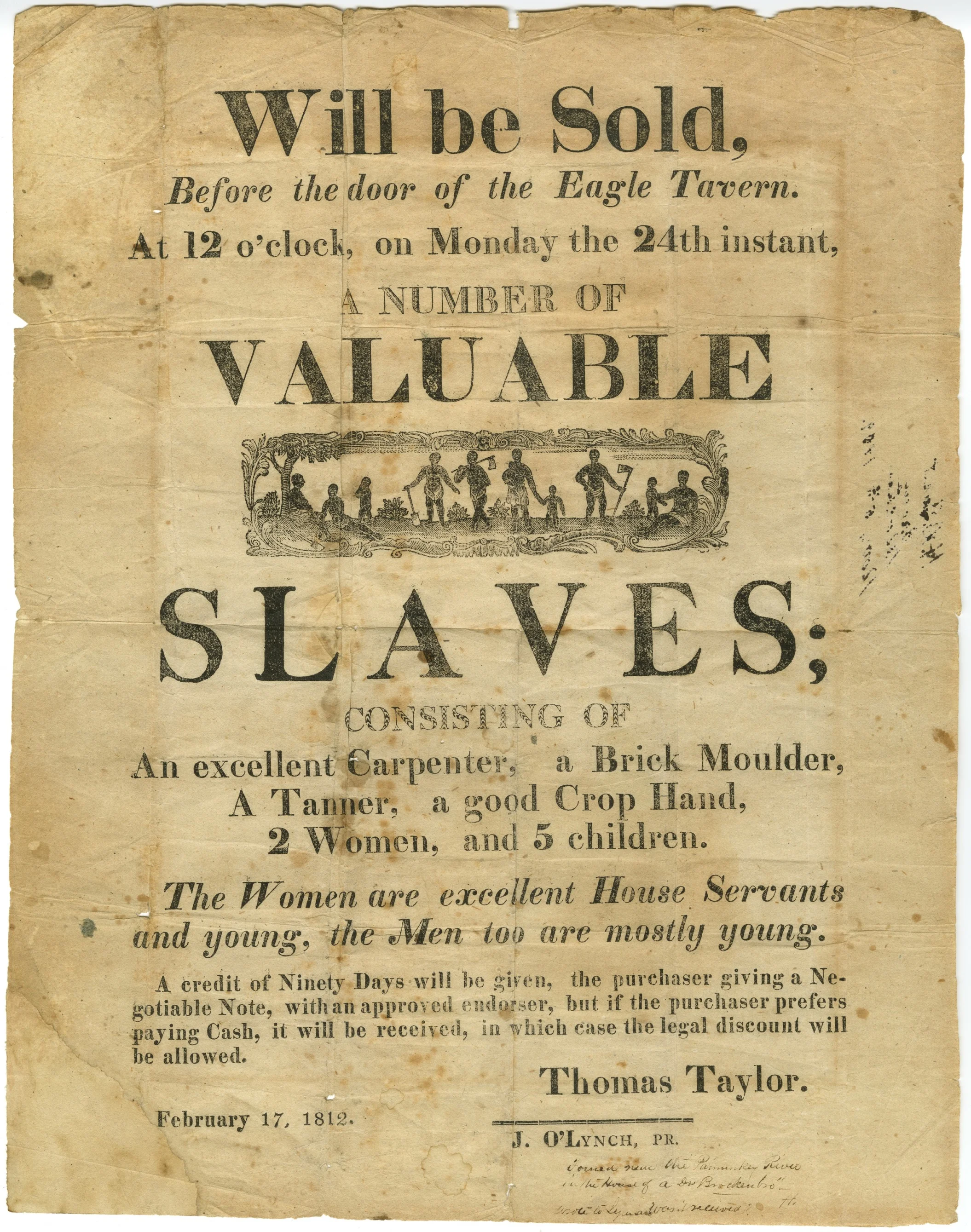The year 1853 in Richmond Virginia: A traveling British artist casually peruses a city newspaper and scans the ever-present notices of slave auctions alongside advertisements for dry goods, patent medicines, and runaway slaves. His curiosity aroused, he decides to attend a sale of human beings. The resulting sketches and paintings by artist Eyre Crowe created an enduring image and record of Virginia’s infamous trade. To Be Sold: Virginia and the American Slave Trade, a traveling exhibition from the Library of Virginia, will be on view at the Lynchburg Museum January 12-March 6, 2016. Admission to the Museum is free.
Click on the image below to get a preview of To Be Sold
By the 1850s, Virginia’s tobacco fields were in decline. Exhibit curator and UVA professor Maurie McInnis relates how 600,000 slaves in Virginia were sold to owners in the Deep South to meet the demand for cotton labor. New England textile mills had created a huge market for raw cotton and this led planters in the Deep South to buy more and more slaves. The booming Richmond slave markets enriched the city’s traders as well as Deep South planters and Northern capitalists involved in the textile industries.
Through images of paintings, insurance policies, bills of sale, broadsides, and other items from the Library of Virginia’s collections, To Be Sold reveals the slave trade as slaves were “sold South.” The exhibit includes interactive media kiosks with slave narratives recorded in the 1930s. Slave history items will also be displayed from the Lynchburg Museum collections.
Thomas Jefferson’s Poplar Forest has done extensive archaeology on slave quarters and is loaning items found in the homes of Jefferson’s slaves. Sweet Briar College is lending a letter from a slave to Elijah Fletcher, Lynchburg Mayor, and father of the school’s founder Indiana Fletcher. The slave, Martha Penn Taylor, asks that he buy her so that she is not “sold South”, which Fletcher did.
The Legacy Museum of African American History and the Martin Luther King Center for Human Rights are exhibit partners and will host an African American genealogy workshop and lecture on February 19th starting at 2 pm in the Community Room at the Lynchburg Public Library. The exhibit and programs are supported by the National Endowment for the Humanities and the Virginia Foundation for the Humanities.


